Working with Polish Colleagues and Business Partners: 6 Key Insights
In this blog post, our trainer Magdalena Szumna shares key points of consideration when it comes to doing business in Poland.
Being born and raised in Warsaw, Poland right at the brink of the fall of the Berlin Wall, Magdalena’s desire for exploring different places and cultures developed early. It was what later propelled her to studying applied social sciences and building an international career abroad.
Tapping into her extensive experience in global marketing and communications of various multinationals and over a decade long living outside of her country of origin - in her work as a trainer today Magdalena provides learning programs for multicultural teams as well as specific trainings related to Polish, British, and Dutch business cultures.
Having spent the first part of her professional career in Poland Magdalena shares firsthand insights into successful cooperation in the Polish business context. These might be helpful in understanding and interpreting intercultural interactions when working with Polish colleagues and business partners.
1. Showing Respect for Hierarchy and Authority
Polish businesses tend to maintain a fairly hierarchical structure, with decisions typically being made at the top levels of management. While collaboration and team input are appreciated, final authority often rests with senior executives or the owner of the business. Be mindful of this when negotiating or trying to push through decisions!
If you’re meeting with a Polish business partner for the first time, don’t be surprised if the senior members of the team lead the discussion. Preferably address higher-ranking officials first and ensure that your presentation or pitch aligns with their expectations.
Demonstrating respect for the chain of command is often crucial to building trust.
2. Prioritizing Punctuality and Professionalism
Professionalism in appearance and demeanor are traditionally highly valued in Polish business culture. Dress code in Polish offices is often relatively formal, particularly in corporate environments. Even in industries where casual dress might be acceptable elsewhere, it’s wise to lean on the side of formality in Poland, especially for initial meetings.
Especially in comparison to the Dutch or Danish working culture this can be a visible difference.
Similarly to Dutch business etiquette though punctuality is equally important. Being late for meetings can be seen as disrespectful, and it may suggest that you’re not taking the business relationship seriously. Arrive on time or, better yet, a few minutes early to show your respect and commitment.
3. Focusing on Building Relationships and Trust
While professionalism is critical, personal relationships traditionally play a significant role in Polish business dealings. Poles value long-term relationships built on mutual respect. Don’t be surprised if your business partners take time to get to know you personally before committing to any significant deals.
It is not uncommon for business meetings to extend into informal settings such as lunches or dinners. These gatherings offer a more relaxed atmosphere, where you can build rapport and strengthen mutual trust. Poles appreciate authenticity, so take time to listen and engage thoughtfully.
Polish business etiquette often includes gestures of hospitality. While lavish gifts are not necessary, small, thoughtful tokens of appreciation, such as local products from your home country are welcomed.
4. Communicating with Precision, Reading Between the Lines
Polish professionals value clarity and precision in business discussions, so avoid overly vague or ambiguous language. Be prepared to support your ideas with data or facts. Deductive reasoning: from context, background, method to conclusion - is paramount.
Compared to the famously direct Dutch communication style, Poles typically tend to communicate with more subtlety as higher-context communicators, meaning you will sometimes need to read between the lines.
Polish partners can come across as reserved in business contexts, especially early on. Don’t mistake this for disinterest or coldness: the trust is developed gradually. The more formal style referring to each other with ‘Pani/Pan’ (eg. ‘Ms/Mr’) preceding a name - is common (eg. Ms Anna/ Mr Peter). Over time, as you build a relationship, communication may become more relaxed and informal.
5. Respecting Work-life Balance and Holidays
While Poles are hardworking and dedicated, work-life balance is increasingly important in Polish business culture, especially in younger generations. Polish employees generally expect to maintain clear boundaries between their professional and personal lives.
It’s also important to note that Poland has a significant number of public holidays, many of which are tied to religious observances (Catholicism being the dominant religion in the country). These holidays are strictly observed, and many businesses closed entirely. Be mindful of scheduling meetings or deadlines around these times, as it could be seen as culturally insensitive and lead to resentment.
6. Considering Significant Generational Differences
As mentioned above, generational differences can be a significant factor in business culture, especially as - just like in other economies - many ventures have multigenerational workforces. Traditionally held values relevant 20-30 years ago might apply less to younger employees as well as younger industries such as tech or IT.
This can be the case when it comes to the value of life work balance - increasingly strong among the younger employees, but also formality in appearance and business attire - with its importance fading.
Summary
In conclusion, while doing business in Poland can be highly rewarding, understanding the cultural dynamics at play is crucial: especially for those used to more flat, transactional cultural contexts. Respecting hierarchy, maintaining professionalism, and fostering long-term relationships are key to succeeding in Polish business culture.
By paying attention to these nuances and adopting a culturally sensitive approach, you can build strong, fruitful business partnerships in Poland.
A Couple of Additional Thoughts
Whilst the presented considerations address some general characteristics and talk to cultural patterns, they are not to be taken at face value.
It's important to recognize that cultural norms and behaviors can vary among individuals and organizations. You may well come across a very informal dress code workplace or meet a manager with flat, egalitarian leadership style.
It is encouraged therefore to treat the above-mentioned considerations as helpful interpretation context rather than as predictive of individual behavior.
Next Steps
Want to learn more about how to ensure good collaboration with Polish colleagues and business partners? Read about our country-specific cultural training here or contact us to hear how we can match your needs for Polish cultural training.
Do you want to gain even more insight and relevant information on the Polish culture? Check out our online course: Your Cultural GPS.
Interested in more inspiration for your cross-cultural work? Then follow us here on LinkedIn – and sign up for our newsletter in the form below.

